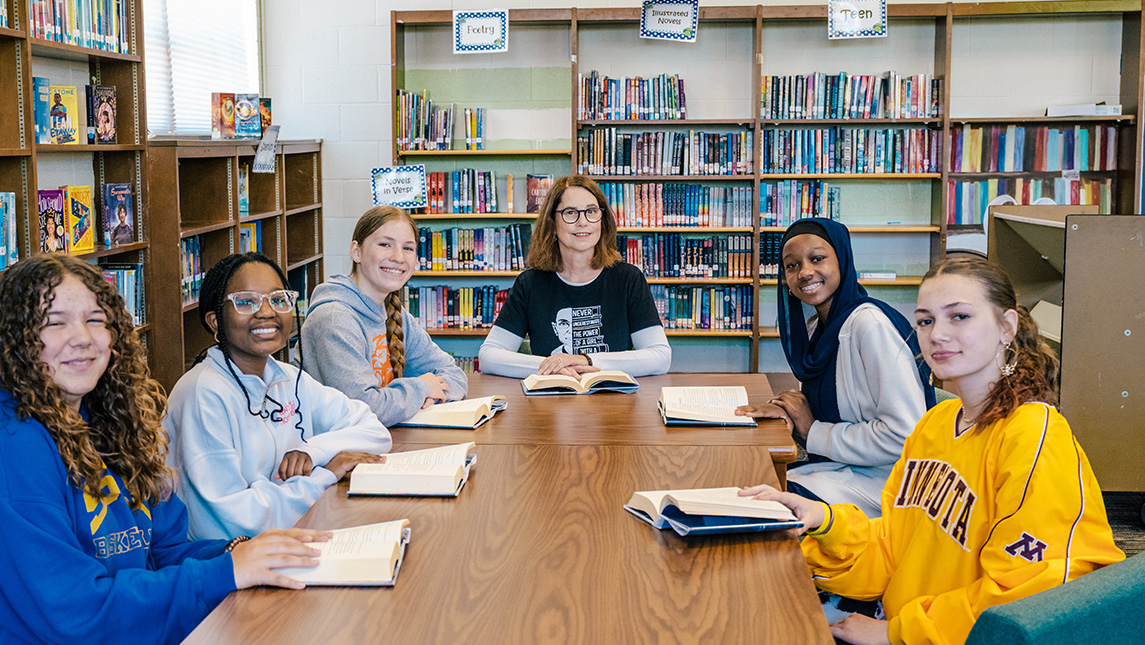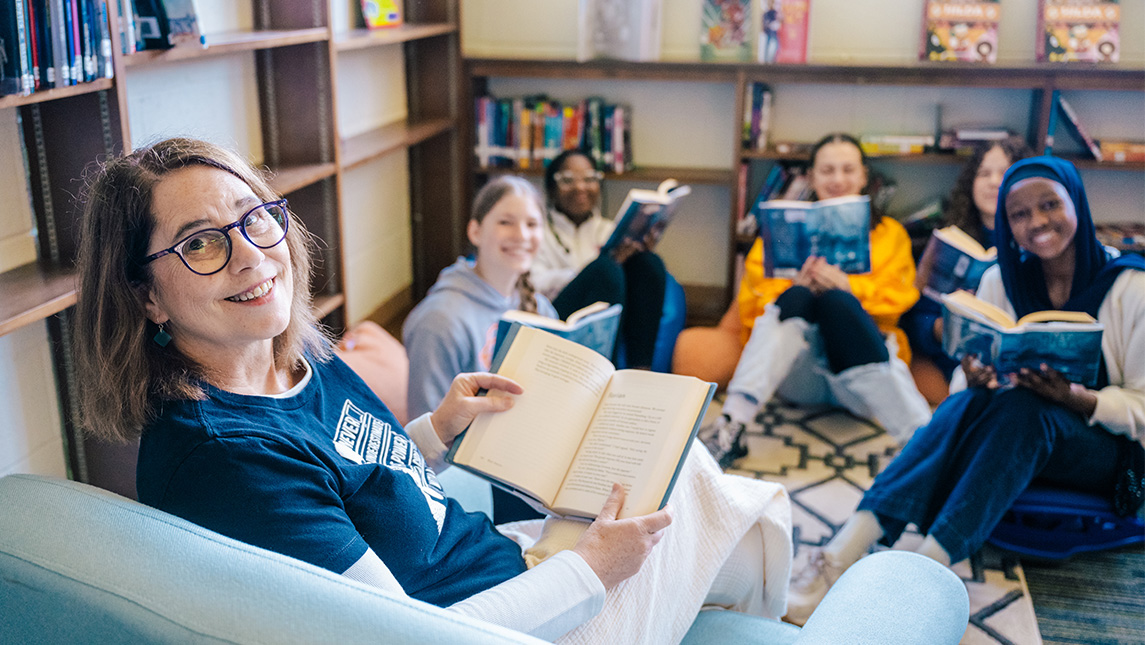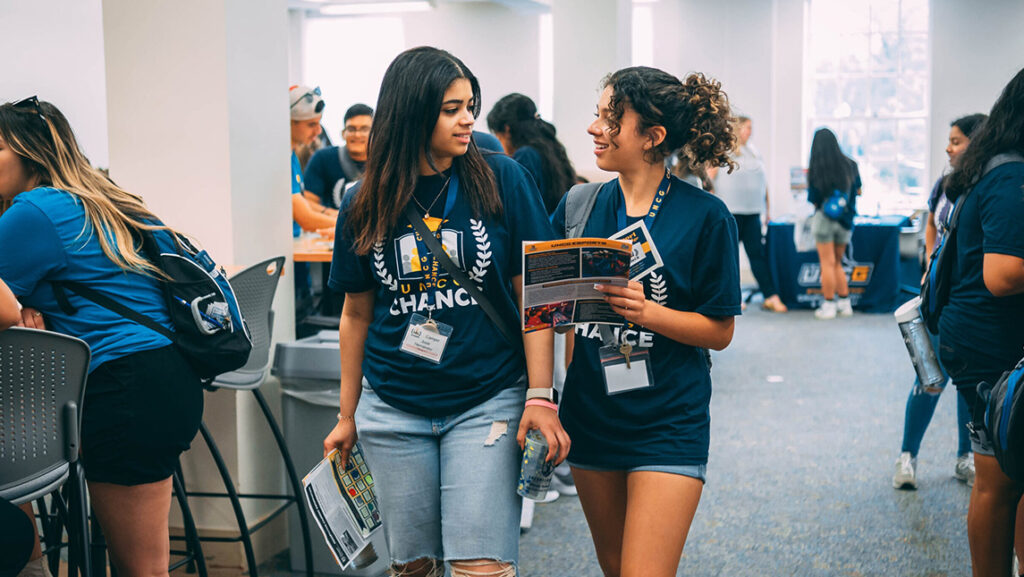When a teacher wants to put a new twist on an old lesson plan, teach students how to use technology, or put together an engaging presentation, one of their most reliable places to go for help is the school library.
Dawn Shirk ’23 MLIS, a library media specialist with Guilford County Schools, says that a school library is the heart of the institution. “When I was a teacher, I collaborated with the librarian a lot. Even if we weren’t in the middle of a specific project, I could come in and say, ‘Here’s what I’m planning. Can you help me find some good books or websites? How would you do this?’”
Shirk now sits on the other side of the library desk with a master of library and information science (MLIS) from UNC Greensboro. Less than a year after earning her degree, she became one of 50 librarians selected across the U.S. and Canada for participate in Emerging Leaders, devising strategies to make libraries a better space for collaboration.
Teachers’ Sidekick
Shirk doubles as a stand-up comic at The Idiot Box comedy club in Greensboro, so she knows what it’s like to work a tough crowd. In education, the toughest crowd is often middle school students, but Shirk is not fazed by this age group’s demands.
“My interests are reading, literacy, and instruction,” says Shirk. “Right now, I teach digital citizenship and research skills. I’m currently developing a Canvas course specifically for seventh grade social studies.”
After 26 years teaching English as a second language, Shirk wanted to try something new. Her friend Heather Moorefield-Lang, an associate professor of information, library, and research sciences at UNCG, suggested getting an MLIS.
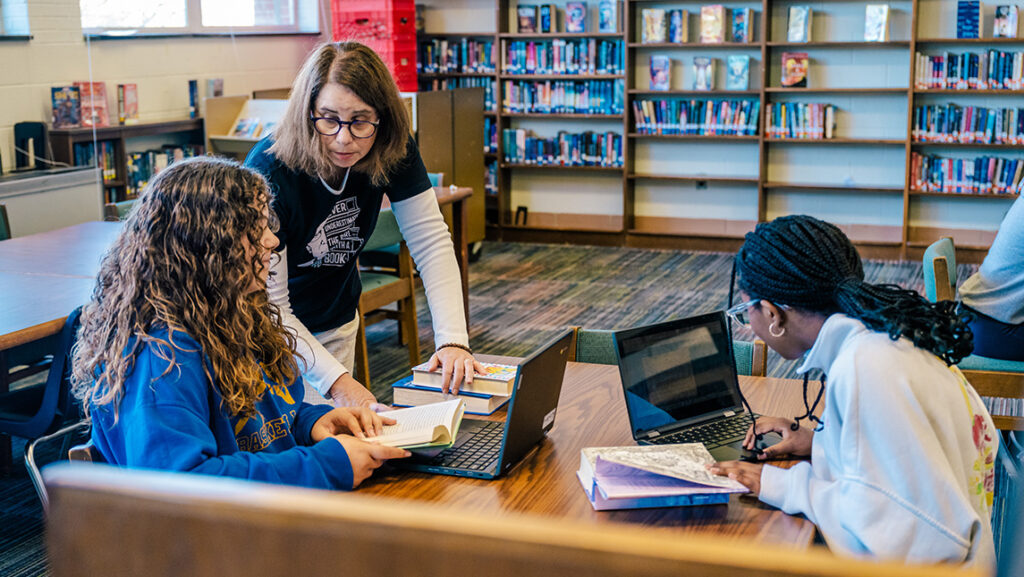
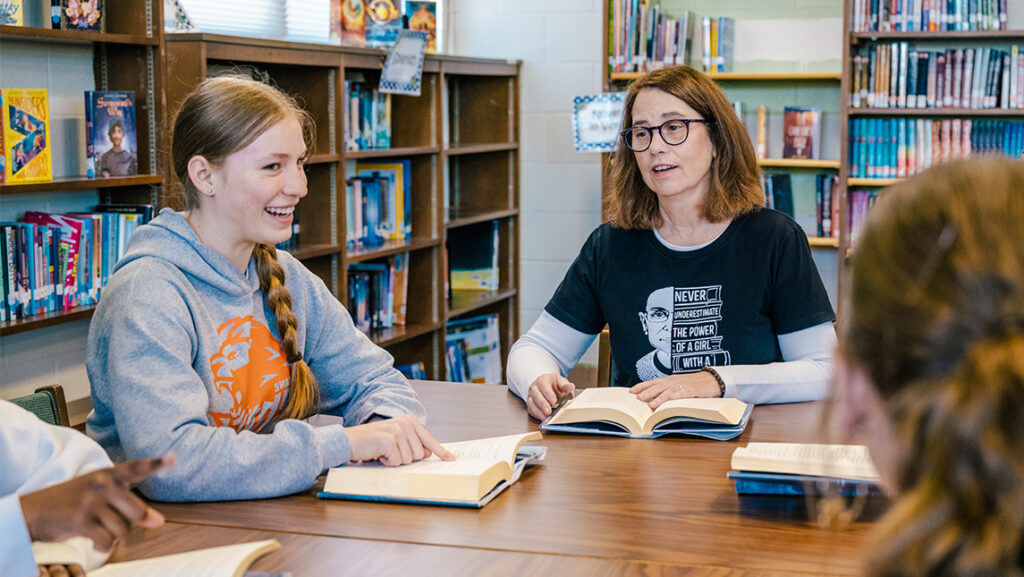
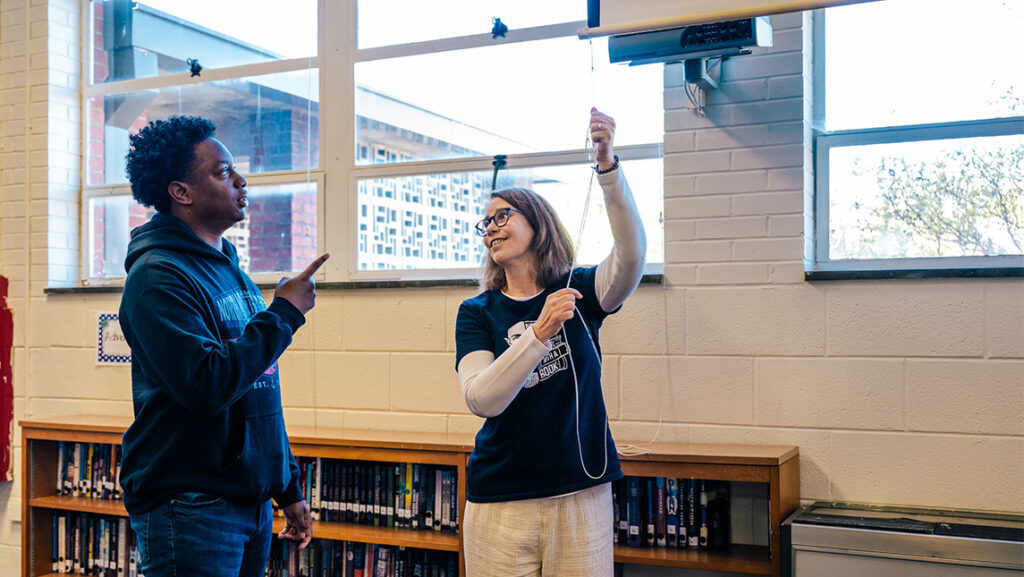
“One semester, we learned about different kinds of libraries,” explains Shirk, who says it was difficult at first to narrow down her interest. “One week, I might say, ‘I want to work in that kind of library,’ and the next week, I would say, ‘No, I want to do that.’”
Overseeing a school library means she gets to keep working with students. Last year, she collaborated with a teacher at Swann Middle School on an assignment for students to write their own memoirs. Shirk gave presentations on memoirs and digital story-creating tools. “I would pop into his classes and say, ‘Hey, how’s everybody doing? Anybody want to show me what you’ve done so far?’ We worked like that for a few weeks,” she says.
The students presented their memoirs in the library. Shirk was thrilled to see how invested the students were in the project. “It was so cool to see them grow in this process. And it can be hard to get eighth graders to get excited about something. I think telling their own stories really helped.”
Emerging Leaders
The Emerging Leaders program selects librarians with fewer than five years of experience from schools, public libraries, academic libraries, even the Library of Congress. They divide into small groups to network and problem-solve. It’s a way for new librarians to get a deeper look into the library system while addressing real-world issues their colleagues face.
The American Association of School Librarians (AASL) sponsored Shirk to help build practical tools for librarians to apply AASL’s six standards – inquire, include, collaborate, curate, explore, engage.
Shirk’s group was assigned the “collaborate” standard. They are creating an online guide organized into different scenarios librarians may face. The guide will connect them with lesson plans and activities related to their objective. Since her team is from all over the country, they hold virtual meetings. They will present their project in June at the annual ALA Conference in San Diego, California.
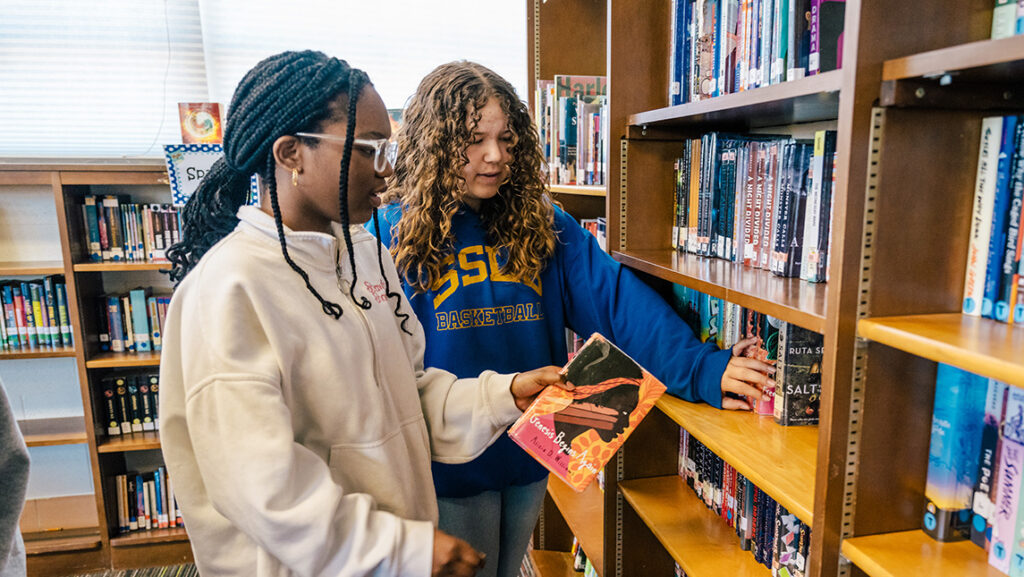
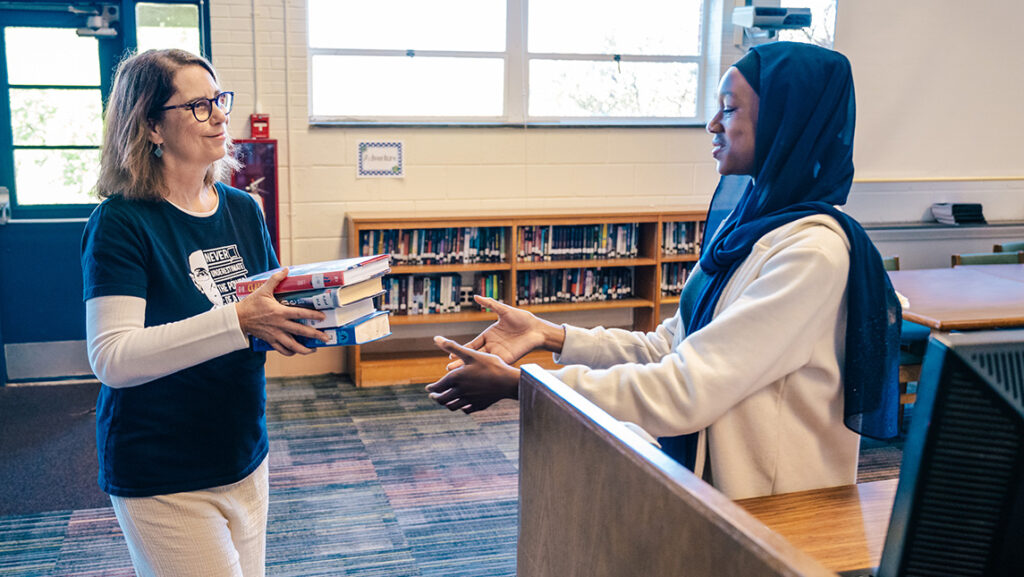
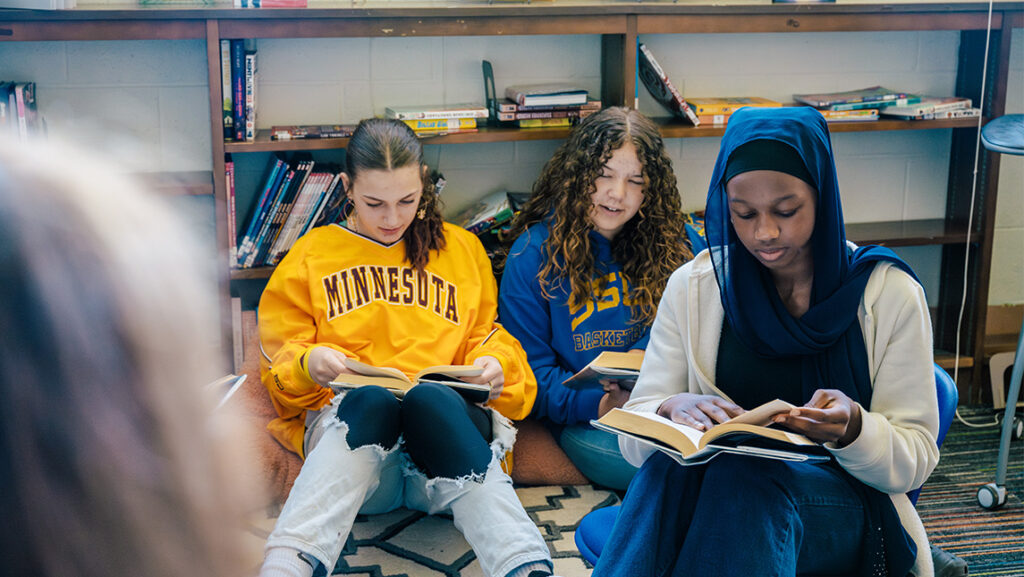
They look at the whole library environment, including the physical space. “I’m focusing on grants that make a library more user friendly, looking at the furniture, and then how to create more programming that makes students want to come to the library,” says Shirk. While she focuses primarily on how students might want to use the space – such as clubs and study sessions – she also considers the ways the school community could benefit. “You could have anything from a PTA meeting to open mic night. That’s my thing.”
As a librarian, Shirk feels she takes on a leadership role without being an administrator, as her job gives her an in-depth perspective on student and teacher needs.
“I work with every single human being in the school,” says Shirk. “Studying at UNCG really opened my eyes to what goes on in education. Being new at this, I see the areas where I can improve. But I think I’ve gotten a good idea of what a school should be.”
Story by Janet Imrick, University Communications
Photography by Sean Norona, University Communications
